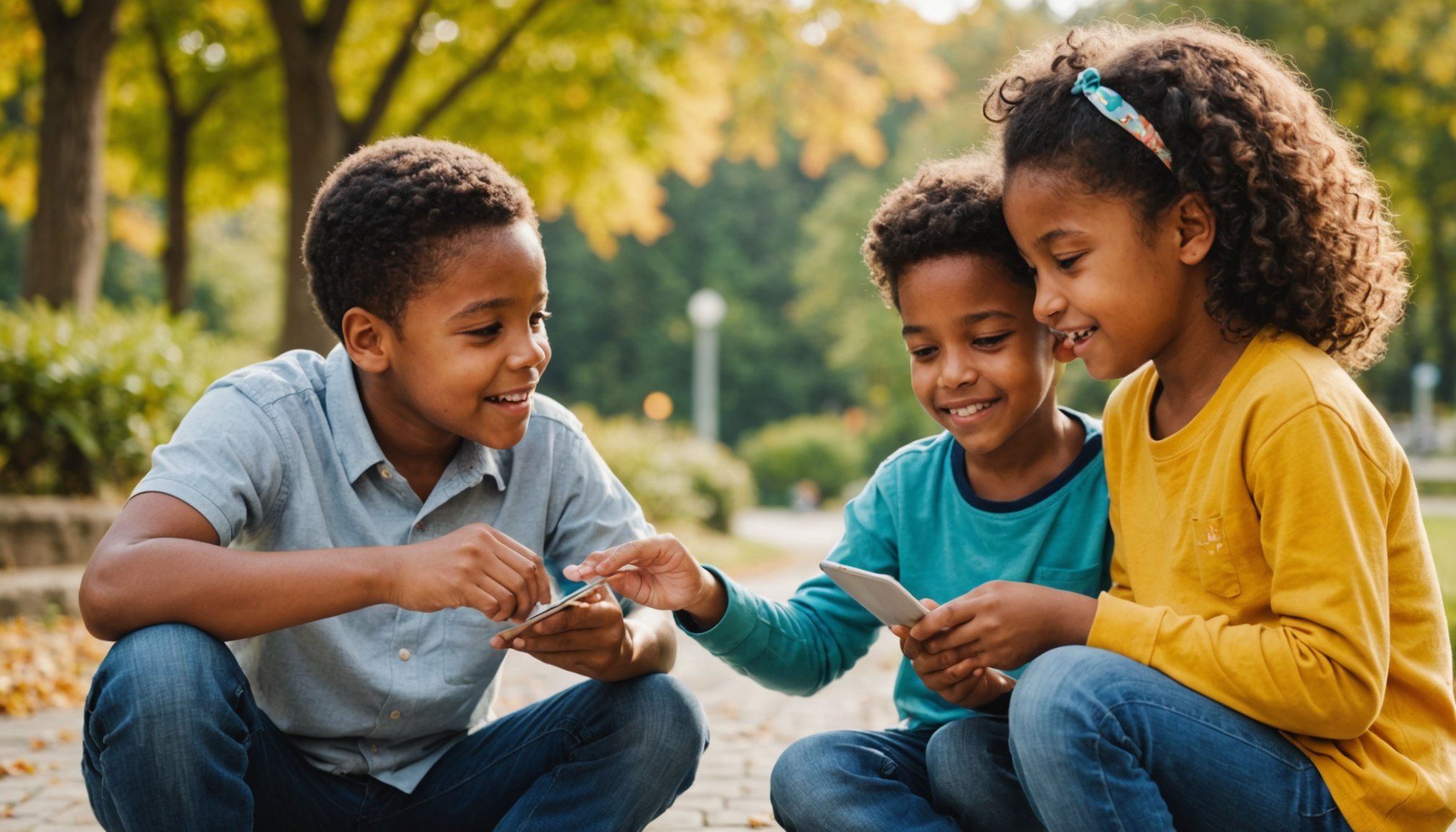The Importance of Emotional and Social Intelligence
Understanding emotional intelligence and social skills is crucial for children’s development. Emotional intelligence refers to the ability to recognise and manage one’s emotions and the emotions of others. Social skills encompass the behaviours necessary for children to interact positively with others. Both these aspects play a significant role in child development as they lay the foundation for future success.
Studies link emotional and social intelligence to long-term achievements. Children who develop these skills early tend to have better relationships and academic performance. They exhibit higher levels of empathy and problem-solving abilities, crucial for navigating life’s challenges. It’s essential for parents and educators to nurture these skills from a young age.
Additional reading : Enhancing elderly brain power: how classical music boosts cognitive function and memory retention
Benefits of Early Development
Children with strong emotional and social intelligence enjoy a range of benefits. They can:
- Form and maintain healthy relationships
- Communicate effectively
- Manage conflicts constructively
Developing these skills early ensures that children grow into well-rounded adults capable of adapting to a rapidly changing world. Encouraging emotional intelligence and enhancing social skills provide children with the tools they need to succeed personally and professionally.
Also to discover : Transform your sleep: discover how yoga nidra can elevate your restful nights
Multicultural Experiences and Their Benefits
Multicultural experiences enrich children’s lives, offering exposure to different cultures and perspectives. Everyday life examples include celebrating various cultural festivals, tasting international cuisines, or learning another language. Through such cultural diversity, children gain invaluable insights that shape their understanding of the world.
Research highlights numerous benefits of multicultural environments on children’s development. Exposure to diverse cultures enhances problem-solving skills and adaptability. Children in such settings often develop a broader worldview, showing increased empathy and cultural competency. Furthermore, these experiences cultivate open-mindedness and respect for differences, fundamental components of emotional and social development.
Psychologically, children immersed in culturally diverse settings show improved cognitive flexibility, due to the regular challenge of integrating and understanding new cultural norms. This environment nurtures not only emotional intelligence but also lays down the framework for navigating a multicultural society effectively.
In essence, multicultural experiences play a pivotal role in fostering a child’s emotional and social intelligence by providing a nuanced understanding of human diversity. As today’s global landscape becomes increasingly interconnected, these skills become substantial assets for future personal and professional success. Encouraging such development ensures children are well-rounded individuals, prepared to engage with the world comprehensively.
Strategies for Fostering Multicultural Experiences
Fostering diversity from a young age equips children with vital skills for navigating today’s global society. Parents can incorporate cultural education by integrating activities like reading diverse storybooks, cooking international dishes, or participating in local cultural festivals. These experiences can open children’s eyes to different traditions and customs, promoting cultural awareness.
Schools also play a crucial role. Educational approaches might include implementing multicultural curricula or celebrating international holidays within the classroom. These inclusive practices allow students to both learn about and respect cultures other than their own while promoting empathy and understanding.
The importance of representation cannot be overstated. Diverse books, toys, and media should be present both at school and at home, reflecting a wide range of backgrounds. This representation broadens children’s perspectives and ensures inclusive learning environments.
Inclusive practices thus pave the way for fostering cultural competency, driving home the message that diversity is a strength to be celebrated. Through ongoing exposure and engagement, children grow into adaptable, empathetic individuals prepared to embrace the multifaceted world around them. Activities designed with these goals in mind directly contribute to a child’s emotional and social intelligence, enriching their developmental journey.
Case Studies and Expert Opinions
Case studies provide invaluable insights into the development of emotional and social skills through multicultural exposure. A notable instance involved a primary school incorporating international programmes where children engaged weekly with peers from different cultural backgrounds. Over time, these students exhibited marked improvements in empathy, understanding, and effective communication.
Expert analysis deepens our understanding of this phenomenon. Child development specialists, such as those from Stanford, emphasize the importance of introducing diverse environments early in life. They argue that such exposure isn’t just a cultural enrichment activity but a fundamental component in nurturing well-rounded individuals. These experts stress that cultural competency plays a pivotal role in fostering collaboration in age-diverse teams.
Successful programmes have further showcased the benefits of cultural sensitivity. One innovative scheme involved cross-cultural excursions, where children experienced various traditions, cuisines, and languages firsthand. Participants consistently reported heightened cultural awareness and adaptability.
Experts advise that promoting cultural competency should be a continual effort, integrating interactive and experiential learning to achieve a comprehensive development approach. Thus, by aligning educational initiatives with expert insights and proven methods, educators and parents can effectively harness the transformative power of cultural experiences, driving emotional and social growth.
Actionable Activities for Parents and Educators
Engaging children in hands-on activities is key to fostering appreciation and understanding of diverse cultures. Parenting strategies could include organising themed family nights with cuisine from around the world, sharing stories, or crafting projects that reflect different cultural traditions. These engaging experiences encourage curiosity and provide context for cultural norms and histories.
Educational activities hinge on interactive learning to make a profound impact. Teachers might design collaborative projects where students research and present on cultures unfamiliar to them. Introducing pen pals from different countries allows students to establish real-world connections while enhancing communication skills.
Community engagement amplifies these efforts by involving children in multicultural festivals or volunteering at community centres that serve diverse populations. Such programs offer firsthand exposure to different ways of life, sparking discussions that promote cultural empathy and awareness.
To further these efforts, numerous resources are available for parents and educators. Books, documentary films, and online platforms offer extensive material for deepening understanding of cultural diversity in child development. By integrating practical activities and community engagement with educational resources, both parents and educators can effectively champion multiculturalism, empowering children to become well-rounded, culturally competent individuals.





